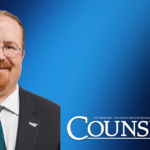Share
With a rapidly expanding peer workforce and reinvigorated recovery-oriented systems of care (ROSC), provider organizations face critical questions about exactly how to provide supportive, engaging, and accountable oversight of the emerging peer workforce. In order to even begin to develop strategies for supervising peers, there is a need to understand several key concepts. One of these concepts is that peer support is a nonclinical service provided to individuals seeking support in times of need. The key term here is “nonclinical.” Thus, the question is this: Should clinical professionals—psychologists, licensed professional counselors, licensed clinical social workers, and licensed alcohol and drug counselors—supervise nonclinical people? What would the implications of this be?
Before I go further into addressing supervision strategies directly, I will first describe the core competencies of peers. Their stated role helps to clarify peer supervision for both supervisors and supervisees. The five principles of core competencies for peers identified by the Substance Abuse and Mental Health Services Administration (SAMHSA) are as follows (2015):
- Recovery oriented
- Person centered
- Voluntary
- Relationship focused
- Trauma informed
For clinical supervision, supervisors follow a theoretical model of counseling or therapy that is clinical in nature. So when clinical professionals supervise peers, it could be problematic and several issues could arise. For example, the supervisor role could erode into a therapeutic relationship instead of supervisorial one. Also, the base skill set of clinical supervisors are focused on the development of clinical skills for those whom they supervise, which is not a skill set that is targeted to peers. If clinical professionals supervise nonclinical peers, the supervising individuals should be trained and have competencies specific to peer supervision. Just as peers must constantly be wary of becoming quasi-therapists to those they assist, peer supervisors must also be vigilant not to cross the boundary from supervision to therapy.
When developing strategies for peer supervision, I believe it is also a mistake to leave the conversation at “administrative supervision,” which is a part of supervision, but is certainly not the only role for this organizational relationship. Peer supervision must also include nonclinical, peer competence, skill development as well as general, professional development. According to “The Pillars of Peer Support Services” definition of peer specialist supervision, “Peer support supervision occurs when a peer support supervisor and peer support specialist supervisee(s) formally meet to discuss and review the work and experience of the peer provider, with the aim of supporting the peer in their professional role” (Daniels, Tunner, Powell, Fricks, & Ashenden, 2015). Furthermore, “The Pillars of Peer Support Services” developed five core principles for peer support supervision (Daniels et al., 2015):
- Peer specialist supervisors are trained in quality supervisory skills.
- Peer specialist supervisors understand and support the role of the peer specialist.
- Peer specialist supervisors understand and promote recovery in their supervisory roles.
- Peer specialist supervisors advocate for the peer specialist and peer specialist services across the organization and in the community.
- Peer specialist supervisors promote both the professional and personal growth of the peer specialist within established human resource standards.
Notably, these five pillars do not include any clinical skills development. Although it may be tempting or seem natural to begin to impart clinical skills to these workers, who may at some future date wish to become licensed mental health practitioners, to do so violates the scope and nature of the work they do. Peers look to supervisors as role models. The optimal approach is to stay within accepted norms for supervising while encouraging career development. This can be done either by building capacity for future peer supervisors (nonclinical), or by encouraging peers to develop educational pursuits while clearly specifying that new skills learned in an educational setting are not to be practiced in peer-to-peer relationships.
Two excellent tools for further supervision strategies for peer support specialist supervisors are the “Substance Use Disorder Peer Supervision Twenty Core Competencies” (Martin & Jordan, 2017) and the “Peer Employee Evaluation Form” (Martin, Jordan, Razavi, & Burnham, 2017). The former teaches individuals to understand the peer role, focus on recovery orientation, and model principles of recovery. These resources can provide clarity and direction for supervisors tasked with supporting and managing peers. The twenty competencies are as follows:
- Understands peer role
- Recovery orientation
- Models principles of recovery
- Supports meaningful roles
- Recognizes the importance of addressing trauma, social inequity, and health care disparity
- Ongoing training
- Professional system navigation
- Applicable laws and regulations
- Community resources
- Role clarity
- Strength-based and person-centered supervision
- Identify and evaluate peer competencies
- Confidentiality
- Ethics and boundaries
- Quality supervision
- Accessibility
- Occupational equity and staff development
- Staff safety
- Peer-delivered services advocacy
- Employment practices
Optimally peers should be supervised by peers with clear role delineation, which fosters a professional career path for peer support specialists. Having a career path will help to bring longevity to the peer workforce. Additional experience and education could be rewarded when peers move from peer support specialist positions to peer support specialist supervisors. In addition, peers should be certified or credentialed as peer recovery support specialists. The International Certification and Reciprocity Consortium (IC&RC) states, “Credentialing provides much-needed standardization to the rapidly growing profession of peer recovery support” and that “Becoming credentialed demonstrates competency by having professional expertise and qualifications verified by an independent evaluator. It recognizes achievement of a standard of ethics, education, and experience necessary to provide quality recovery support services” (n.d.).
To be able to improve the supervision of peers, you can first survey the landscape and see what current supervision of the workforce looks like. State agencies or certification boards could create a list of registered and qualified peer support specialists’ supervisors. In addition, state agencies or certification boards can build in supervision requirements that meet the criteria previously discussed. Peers can begin building careers by becoming certified through state affiliates of international organizations such as IC&RC via the peer recovery credential, which “is designed for individuals with personal, lived experience in their own recovery from addiction, mental illness, or co-occurring substance and mental disorders” (IC&RC, n.d.).
References
- Daniels, A. S., Tunner, T. P., Powell, I., Fricks, L., & Ashenden, P. (2015). Pillars of peer support services summit six: Peer specialist supervision. Retrieved from https://peerrecoverynow.org/ResourceMaterials/Pillars%20of%20PeerSupport%202014.pdf
- International Certification & Reciprocity Consortium (IC&RC). (n.d.). Peer recovery (PR). Retrieved from https://internationalcredentialing.org/creds/pr
- Martin, E., & Jordan, A. (2017). Substance use disorder peer supervision competencies. Retrieved from http://www.williamwhitepapers.com/pr/dlm_uploads/Peer-Supervision-Competencies-2017.pdf
- Martin, E., Jordan, A., Razavi, M., & Burnham, V. IV. (2017). Peer employee evaluation form. In E. Martin & A. Jordan, Substance use disorder peer supervision competencies (pp. 31–4). Retrieved from http://www.williamwhitepapers.com/pr/dlm_uploads/Peer-Supervision-Competencies-2017.pdf
- Substance Abuse and Mental Health Services Administration (SAMHSA). (2015). Core competencies for peer workers in behavioral health services. Retrieved from https://www.samhsa.gov/sites/default/files/programs_campaigns/brss_tacs/core-competencies_508_12_13_18.pdf
About Me
Pete Nielsen is the President & Chief Executive Officer for the California Consortium of Addiction Programs and Professionals (CCAPP), CCAPP Credentialing, CCAPP Education Institute, and the National Behavioral Health Association of Providers (NBHAP). CCAPP is the largest statewide consortium of addiction programs and professionals, and the only one representing all modalities of substance use disorder treatment programs. NBHAP is the leading and unifying voice of addiction-focused treatment programs nationally. Mr. Nielsen has worked in the substance use disorders field for 20 years. In addition to association management, he brings to the table experience as an interventionist, family recovery specialist, counselor, administrator, and educator, with positions including campus director, academic dean, and instructor.
Mr. Nielsen is the secretary of the International Certification and Reciprocity Consortium and the publisher for Counselor magazine. He is a nationally known speaker and writer published in numerous industry-specific magazines. Mr. Nielsen holds a Master of Science in Counseling Psychology and a Bachelor of Science in Business Management.












 Counselor Magazine is the official publication of the California Association of Addiction Programs and Professionals (CCAPP). Counselor offers online continuing education, article archives, subscription deals, and article submission guidelines. It has been serving the addiction field for more than thirty years.
Counselor Magazine is the official publication of the California Association of Addiction Programs and Professionals (CCAPP). Counselor offers online continuing education, article archives, subscription deals, and article submission guidelines. It has been serving the addiction field for more than thirty years.